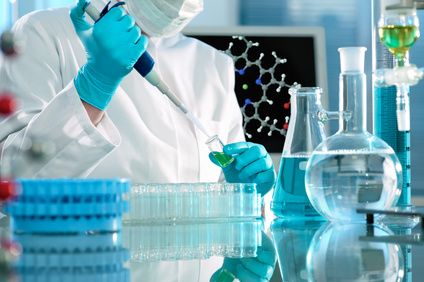
(Vienna, 03 December 2020) New research data highlight a marked predisposition to lymphoma, a type of cancer, in children harboring specific gene mutations. A significant fraction of these rare mutations also cause inborn immune defects associated with recurrent infections. Collaborating closely with leading centers across the world, researchers investigated patients bearing recently identified defects in two molecules termed CD27 and CD70. In contrast to previously reported high mortality rates associated with lymphoma in a part of this population, the present results are encouraging: a high cure rate was achieved if patients received stem cell transplantation soon after diagnosis. Published in the Journal Blood, the study gives insights into clinical course and early immunological parameters as well as treatment response in the largest group of children with CD27 or CD70 deficiency to date.
A worldwide study may contribute to cure children with specific inborn mutations, by providing unprecedented insights into disease characteristics. The underlying mutations, namely in the genes encoding CD27 and CD70, cause inborn errors of the immune system (immunodeficiencies). A major threat to these immuno-compromised patients are infections, primarily with Epstein-Barr virus (EBV). The impaired immune system cannot cope with this infection, and the virus persists in the blood. Subsequently it causes severe disease, including lymphoma. This is a type of cancer originating from infection-fighting cells of the immune system, termed lymphocytes.
Given the rarity of these mutations, no consensus on how to treat affected children exists. Previous observations had shown that patients with CD27 or CD70 deficiencies have a significantly increased risk of death during the first occurrence of lymphoma. To improve outcome, the recently published study for the first time reports in-depth clinical and immunological characterization of the largest patient cohort (n=49) with CD27 or CD70 deficiency reported to date.
Remarkable results in a rare disease
The new data highlight the marked predisposition to lymphoma of both CD27 and CD70 deficient patients. For children with severe Epstein-Barr virus associated disease, or lymphoma, genetic investigation of CD27 and CD70 is essential. This could optimize clinical management and most importantly support in making a timely decision for curative hematopoietic stem cell transplantation.
“In our study population we report excellent outcome following hematopoietic stem cell transplantation in patients with severe disease manifestations, predominantly lymphoma”, study senior author Kaan Boztug comments. 18 out of 19 (95%) patients who received stem cell transplantation just after their first malignant event could be cured. This means they are cancer free after a median follow-up of two years. Co-first author Sevgi Köstel Bal adds, “Our results provide a strong rationale for timely use of this curative treatment in patients with CD27 or CD70 deficiencies upon lymphoma diagnosis.”
Consider immune defect in children with cancer
Designed as a retrospective analysis, the study included clinical information of 49 patients from 20 centers all over the world. 33 patients presented with CD27 and 16 with CD70 deficiency.
The majority (90%) of patients had an Epstein-Barr virus infection at diagnosis of CD27 or CD70 deficiency. 36% of CD27 deficient patients and 56% of CD70 deficient patients developed lymphoma at a median age of 8.5 or three years, respectively. Another frequent event was autoinflammation, which appeared in various forms in 21 patients (43%). Autoinflammation is an aberrant inflammatory reaction affecting the body’s own tissues that derives from the innate immune system.
Major findings relate to immunological characteristics, mechanisms of disease pathogenesis and clinical course of individual patients undergoing various treatments. These findings highlight the critical role of CD27-CD70 interaction in regulating immunity, especially in the context of Epstein-Barr virus control and formation of lymphoma. The new data underline that an immune defect should be considered as underlying cause when children present with cancer, in particular if there is a history of recurrent infections or inability to control Epstein-Barr virus.
Largest cohort due to world-wide approach
Performed in close collaboration with the Inborn Errors Working Party of the European Society for Immunodeficiencies (ESID) and the European Society for Bone and Marrow Transplantation (EBMT), this study reports the to date world’s largest cohort of patients with mutations in either CD27 or CD70. This was only possible in a multicenter effort, led by the study centers in Vienna, Sydney, Düsseldorf, Leiden, Tehran, and Ankara.
Publication:
Extended Clinical and Immunological Phenotype and Transplant Outcome in CD27 and CD70 Deficiency.
S Ghosh*, S Köstel Bal*, E S J Edwards*, B Pillay, R Jimenez-Heredia, G Rao, F Erol Cipe, E Salzer, S Zoghi, H Abolhassani, T Momen, E Gostick, D A Price, Y Zhang, A J Oler, C Gonzaga-Jauregui, B Erman, A Metin, I Ilhan, S Haskologlu, C Islamoglu, K Baskin, S Ceylaner, E Yilmaz, E Unal, M Karakukcu, D Berghuis, T Cole, A Kumar Gupta, F Hauck, A Hoepelman, S Baris, E Karakoc-Aydiner, A Ozen, L Kager, D Holzinger, M Paulussen, R Krüger, R Meisel, P Thomas Oommen, E C Morris, B Neven, A J J Worth, J M van Montfrans, P Fraaij, S Choo, F Dogu, E G Davies, S Burns, G Dueckers, R Perez Becker, H von Bernuth, S Latour, M Faraci, M Gattorno, H Su, Q Pan-Hammarström, L Hammarström, M J Lenardo, C S Ma, T Niehues, A Aghamohammadi, N Rezaei**, A Ikinciogullari**, S G Tangye**, A C Lankester**, K Boztug**
Blood. 2020 Jun 30; blood.2020006738. doi: 10.1182/blood.2020006738. Online ahead of print. PMID: 32603431
* S.G, S.K.B and E.J.E contributed equally.
** N.R., A.I., S.G.T., A.C.L. and K.B. contributed equally.
Corresponding authors: K.B., A.C.L. and S.G.T.
Link: https://doi.org/10.1182/blood.2020006738